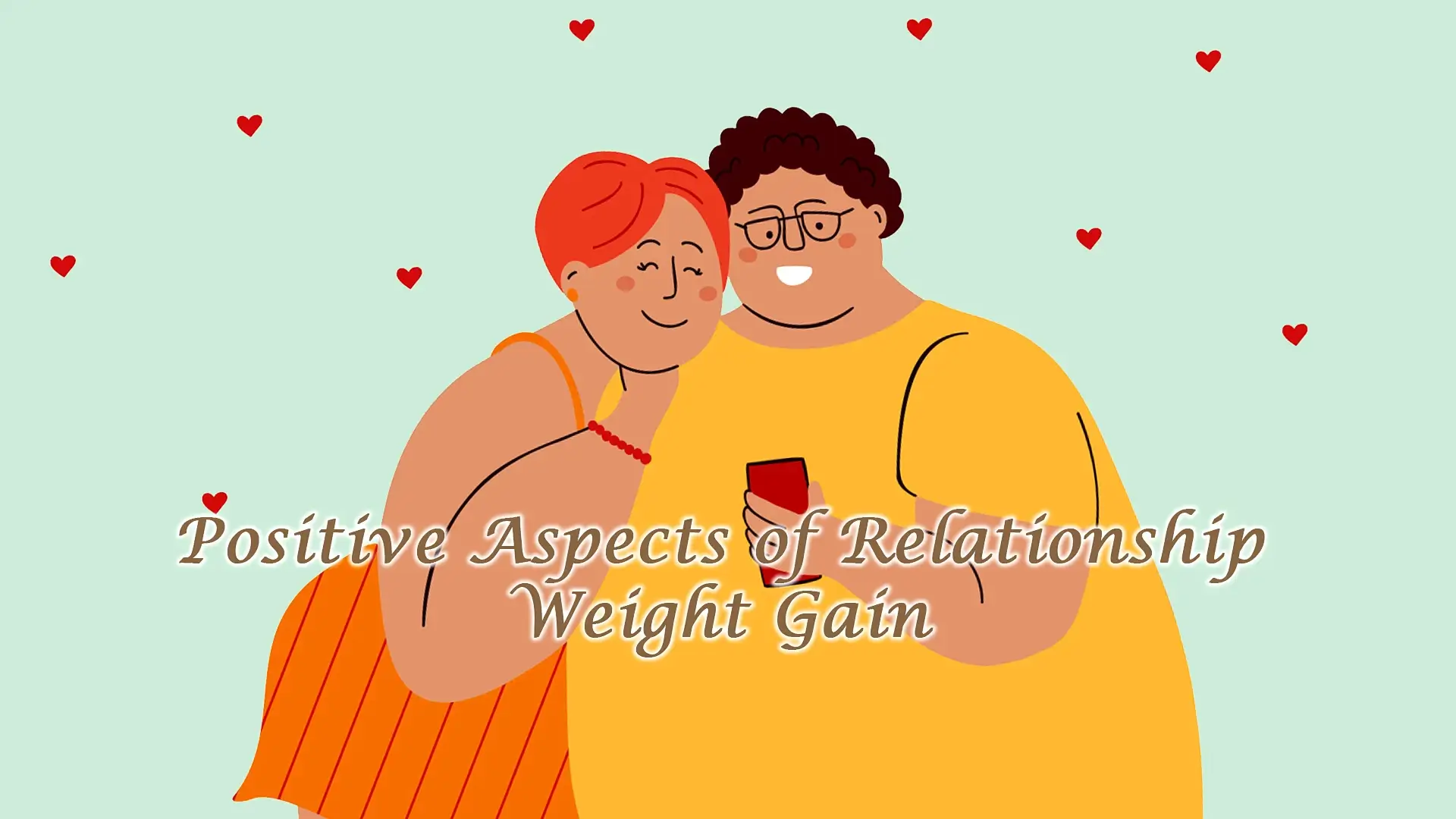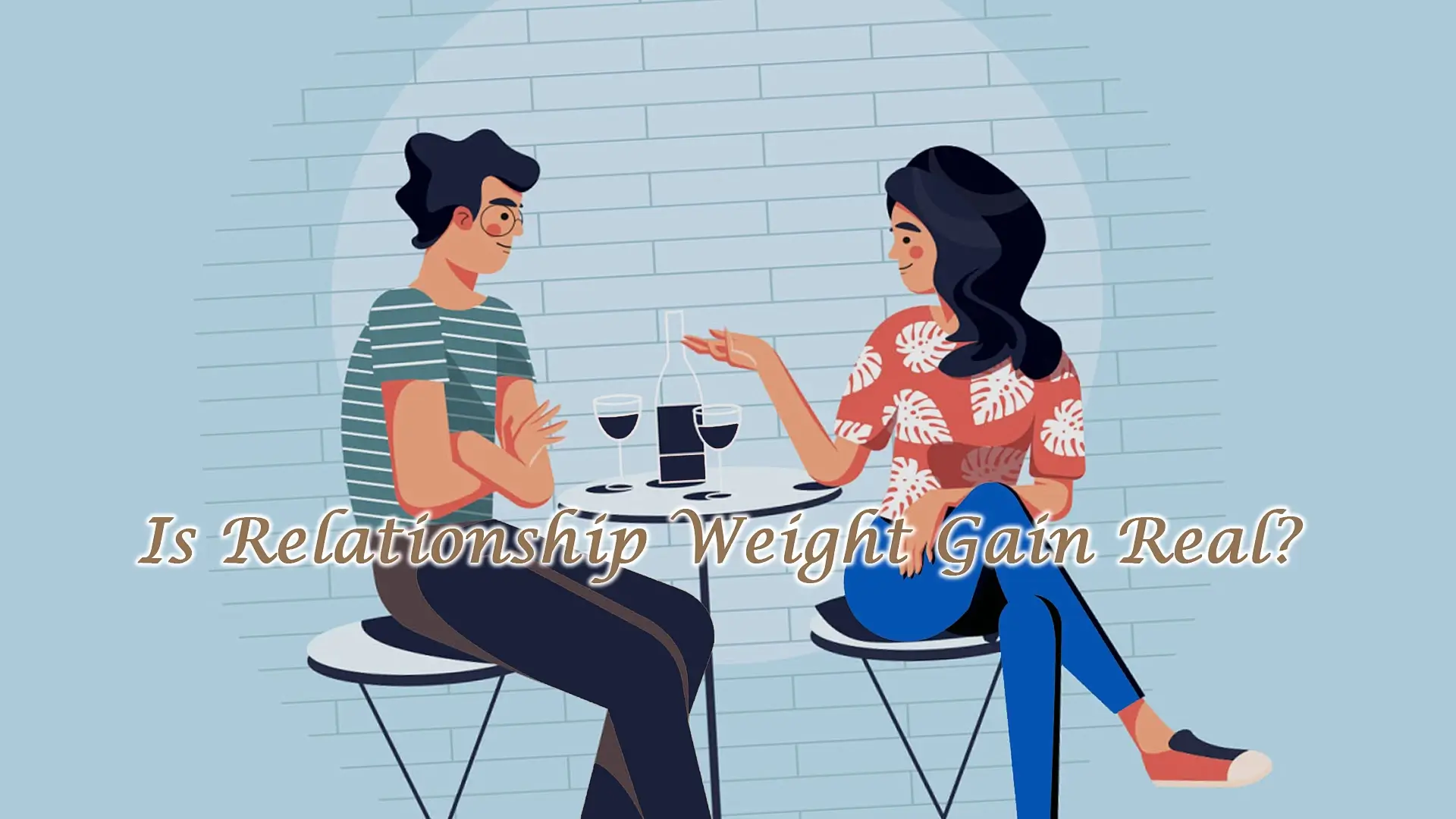In a relationship, as two people get closer, many changes take place. Some changes are emotional, some are psychological, and some are literally physical. One common topic of discussion is the phenomenon known as relationship weight gain. Many couples notice changes in their weight after being together for a while. But is relationship weight gain real or is it just a myth? Let’s break down the science, psychology, and lifestyle factors that contribute to this intriguing topic.
Understanding Relationship Weight Gain
Is relationship weight gain real? Yes, it is a phenomenon observed by many couples and confirmed by scientific studies. Relationship weight gain is the weight gain that some people experience after entering a romantic relationship. While not all people gain weight, it is a common enough and interesting enough phenomenon to be researched, scientifically.
Scientific Evidence
Several studies have documented the correlation between relationships and weight gain. A 2012 study published in the journal Obesity found that couples who lived together for over two years were more likely to gain weight compared to those who did not cohabit. Another study from the New England Journal of Medicine in 2007 indicated that married individuals are more likely to gain weight than their single counterparts. These studies suggest that the companionship and lifestyle changes associated with relationships can contribute to weight gain.
Psychological Factors
Psychological factors play a significant role in relationship weight gain. When people enter into a stable relationship, they often feel more secure and less concerned with maintaining a certain physique to attract a partner. This phenomenon, known as “settling in,” can lead to reduced motivation to engage in weight management practices.
Moreover, relationships often provide emotional comfort and stability. For some, food becomes a shared activity that enhances bonding and emotional intimacy. Couples might indulge in comfort foods together, dine out more frequently, or celebrate special occasions with lavish meals, all contributing to potential weight gain.
Lifestyle Changes
When asking “is relationship weight gain real,” it is essential to consider the lifestyle changes that occur in relationships.
Eating Habits
Couples often adopt each other’s eating habits. If one partner has a penchant for snacking or prefers high-calorie foods, it can influence the other partner’s eating behaviors. Shared meals and synchronized eating schedules can also lead to an increase in calorie intake.
Socializing and Dining Out
New relationships often involve social activities that revolve around food. Dates at restaurants, movie nights with popcorn, and celebrations with desserts become more frequent. Over time, these activities can contribute to weight gain if not balanced with healthier habits.
Physical Activity
Couples might also experience a decline in physical activity. The time that was once spent on individual fitness routines may now be spent on shared activities that are more sedentary, like watching movies or lounging at home. While some couples do engage in physical activities together, others might find that their overall activity level decreases.
Biological and Hormonal Factors
Biological and hormonal factors also play a role. Being in a loving relationship can lead to the release of oxytocin, the so-called “love hormone,” which can reduce stress levels. While this is beneficial for mental health, it might also lower the body’s need to burn off the energy that stress might otherwise consume. Furthermore, hormonal changes associated with happiness and emotional security can influence appetite and metabolism, contributing to weight gain.

Positive Aspects of Relationship Weight Gain
While weight gain is often viewed negatively, it is essential to recognize that it can have positive aspects when associated with a healthy relationship.
Increased Happiness
Gaining weight in a relationship often correlates with increased happiness and emotional stability. Couples who are happy together tend to engage in more shared activities, including eating, which can strengthen their bond.
Reduced Stress
Being in a supportive relationship can significantly reduce stress, which in turn can lead to weight gain. Stress often leads to weight loss or unhealthy eating habits. A stable relationship can reverse these effects, leading to a healthier overall lifestyle, even if it includes some weight gain.

Balancing Relationship and Health
While the phenomenon of relationship weight gain is real, it does not mean that couples must accept it as an inevitable part of being in a relationship. There are strategies to balance relationship dynamics and maintain a healthy weight.
Communicate and Set Goals
Open communication about health goals and fitness routines is crucial. Couples can work together to establish shared health goals, such as cooking healthier meals, exercising together, or supporting each other’s individual fitness pursuits.
Healthy Cooking and Eating
Learning to cook healthy meals together can be a fun and bonding experience. Experimenting with nutritious recipes and being mindful of portion sizes can help prevent unnecessary weight gain. This approach not only fosters a healthier lifestyle but also strengthens the relationship.
Active Dates
Incorporating physical activity into date plans can be beneficial. Instead of dining out, couples can go for hikes, take dance classes, or engage in sports they both enjoy. This helps in maintaining fitness levels and adds variety to the relationship.
Mindfulness and Support
Practicing mindfulness around eating habits and providing mutual support can help couples avoid mindless snacking and emotional eating. Encouraging each other to make healthier choices and being mindful of triggers that lead to overeating can make a significant difference.
Summing Up
Is relationship weight gain real? The evidence suggests that it is a common phenomenon influenced by a variety of factors, including psychological comfort, lifestyle changes, and biological responses. While it is a reality for many couples, it is not an inevitable outcome. By maintaining open communication, setting shared health goals, and incorporating healthy habits, couples can enjoy the emotional and physical benefits of their relationship without compromising their health. Ultimately, the key is finding a balance that allows both partners to thrive emotionally and physically.
It will be interesting: Believe It & You Will Achieve It.




very interesting topic, I’ve been to it a couple of times myself, you need very strong control so as not to spoil anything
Great article! I definitely experienced relationship weight gain when my partner and I moved in together.